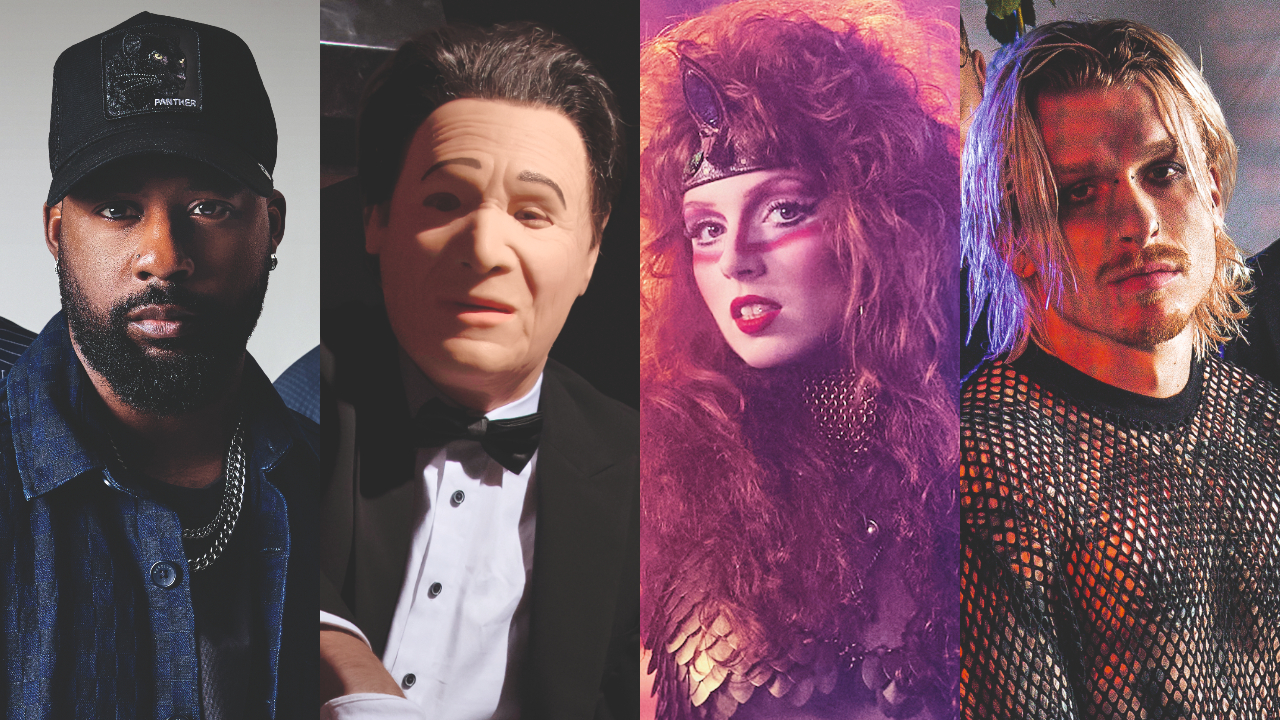Trivium’s Ascendancy: the 00s metal masterpiece that built an empire
Trivium were nerdy teens before their 2005 album Ascendancy turned them into metal's next big thing. And that's when things started getting really crazy
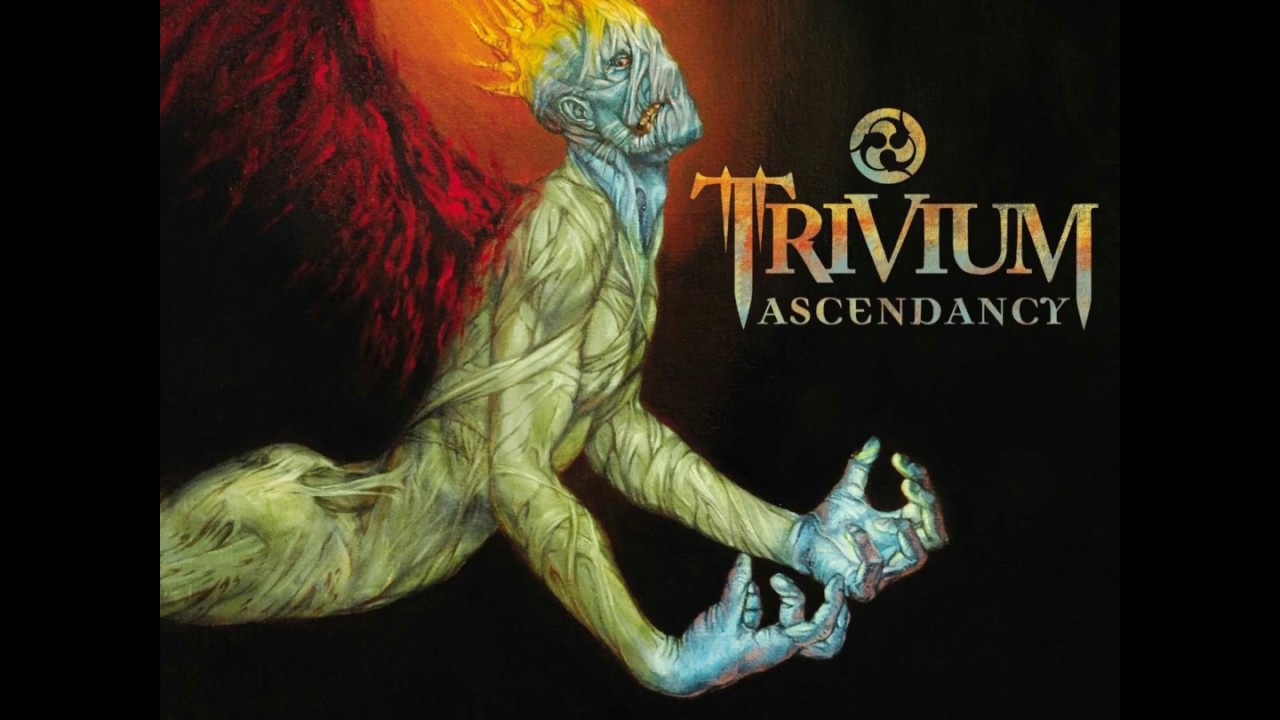
Select the newsletters you’d like to receive. Then, add your email to sign up.
You are now subscribed
Your newsletter sign-up was successful
Want to add more newsletters?

Every Friday
Louder
Louder’s weekly newsletter is jam-packed with the team’s personal highlights from the last seven days, including features, breaking news, reviews and tons of juicy exclusives from the world of alternative music.

Every Friday
Classic Rock
The Classic Rock newsletter is an essential read for the discerning rock fan. Every week we bring you the news, reviews and the very best features and interviews from our extensive archive. Written by rock fans for rock fans.

Every Friday
Metal Hammer
For the last four decades Metal Hammer has been the world’s greatest metal magazine. Created by metalheads for metalheads, ‘Hammer takes you behind the scenes, closer to the action, and nearer to the bands that you love the most.

Every Friday
Prog
The Prog newsletter brings you the very best of Prog Magazine and our website, every Friday. We'll deliver you the very latest news from the Prog universe, informative features and archive material from Prog’s impressive vault.
There’s a framed picture on the wall of Matt Heafy’s bedroom: a copy of Trivium’s first ever magazine cover, from the summer of 2005. Trivium’s then 19-year-old frontman is photographed holding a burning Flying V guitar, but it’s the words printed above those flames that truly draw the eye. In bold yellow type they read ‘Sabbath… Maiden… Metallica… Trivium: The Hottest Metal Band of the Century.’ Such was the excitement, hype and heat generated by the release of the Florida band’s much-loved Ascendancy album in March 2005.
Ten years on, the memories of that period still cause Matt to smile. They were, he recalls, “exciting, dizzying times”, when – alongside fellow young guns Bullet For My Valentine and Avenged Sevenfold – his band were tipped as trailblazers at the vanguard of a new wave of heavy metal.
“When I was 12 or 13 someone asked me about my goals in life and I said, ‘I want to play in a big metal band’,” he recalls. “That was all I thought about then. And when Ascendancy came out it was like, ‘Oh shit, this might actually happen!’ Day after day, it felt like our dreams were coming true.”
Though it was often billed as such at the time, Ascendancy was not Trivium’s first album. Two years earlier, the Orlando natives (then a trio, with Matt joined by bassist Brent Young and drummer Travis Smith) had released their debut album, Ember To Inferno, on German record label Lifeforce.
Matt’s excitement at the time was somewhat tempered by the fact that upon its release, not a single copy of the album was on sale in the state of Florida or, to the best of his knowledge, anywhere at all in America. So it came as something of a surprise when the teenager received a phone call from Roadrunner Records’ Senior Vice President of A&R Monte Conner, offering praise and encouragement.
“Basically, two tracks from the album – Pillars of Serpents and If I Could Collapse The Masses – were given away free with some metal mag which landed on Monte’s desk,” the singer remembers. “He called me and said, ‘I think you guys are good, not great yet, but I’m interested to see where you go after this record.’ That call really lit a fire under our asses and made us really focus on trying to come up with something to blow him away.”
Some months later, Matt sent a new, three-track demo to Roadrunner’s New York offices for Monte’s attention, along with a professionally shot video (funded by his father) for the demo’s lead track, Like Light To The Flies. Word swiftly came back that the label now wanted to put the band (now expanded to a quartet with the addition of guitarist Corey Beaulieu) under contract.
Sign up below to get the latest from Metal Hammer, plus exclusive special offers, direct to your inbox!
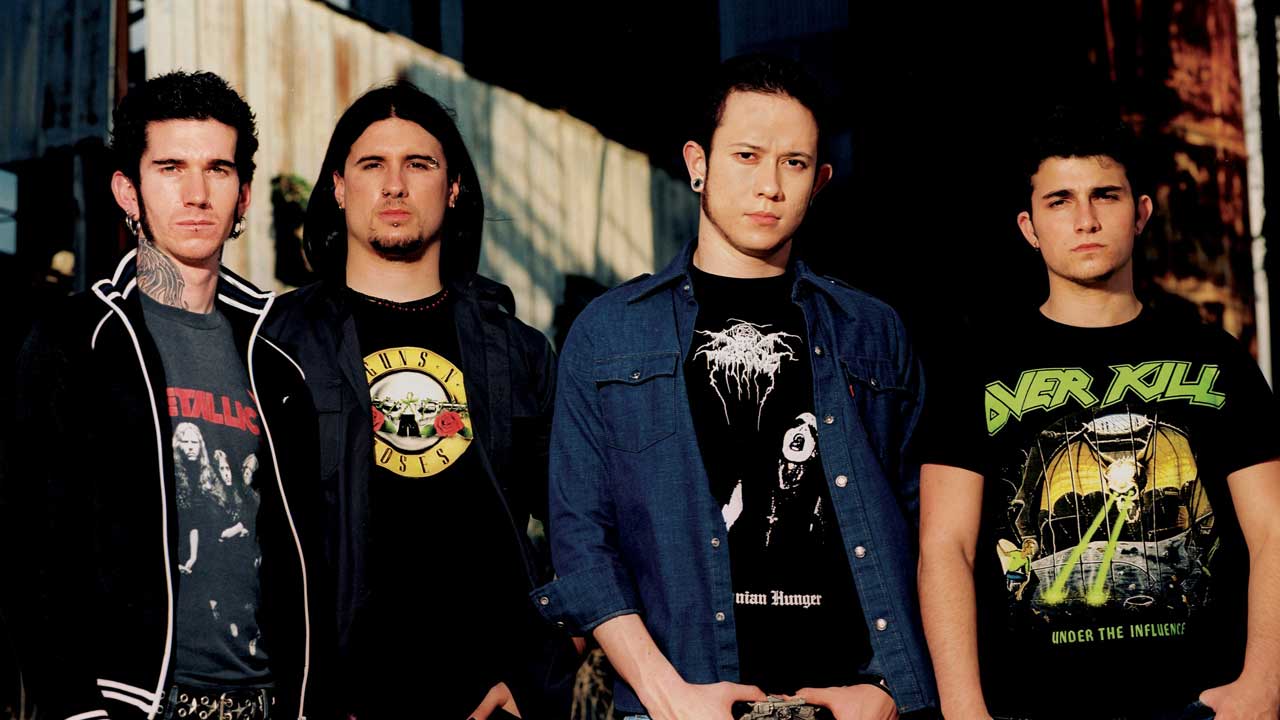
At the time, Roadrunner were in the process of putting together a summer 2004 showcase tour for the label, with Machine Head and Chimaira heading up the package, and the young Floridians were offered a slot. There was only one snag: Brent Young had quit the band, and Trivium urgently needed a new bassist. Enter 18-year-old Paolo Gregoletto from Miami-based thrashers Metal Militia.
“I’d just graduated high school and suddenly I was touring across America with one of my favourite metal bands,” laughs Paolo. “It was kinda mindblowing. I’d heard Ember to Inferno, but now the band had a whole bunch of new songs which were stronger and more aggressive and just better. I knew that we had the foundations of a really good album.”
The Road Rage tour offered the new-look Trivium an opportunity to road-test their new material in front of a nationwide audience to whom they were complete unknowns. Choruses were tweaked, riffs sharpened, melodies tightened and accentuated, so that by the time the young quartet entered the studio with producer Jason Suecof in October 2004, they knew the material inside out. By January, Ascendancy – a thrilling meld of metalcore, melodic death metal and classic metal influences - was complete.
“I remember holding the album for the first time and thinking, ‘Holy crap, this is a new level for us!’” says Matt. “We didn’t know if anyone else would like it, but we were proud of what we’d done.”
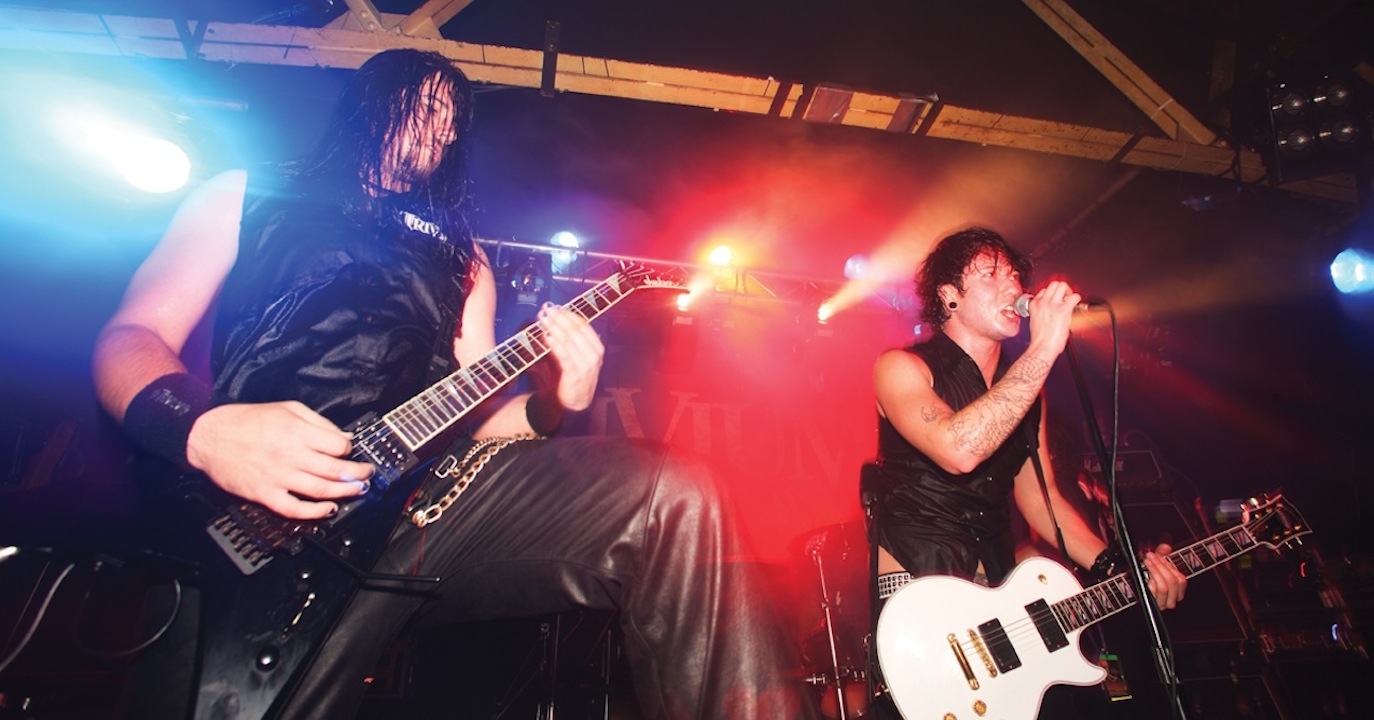
It was in the UK some months later, the frontman recalls, that Trivium first realised they might have a genuinely special album on their hands. On May 1, 2005, the four-piece kicked off the UK leg of the Road Rage tour with labelmates 3 Inches Of Blood and Still Remains at Wolverhampton’s Wulfrun Hall. As they waited to take the stage, the young band could hear muffled chants of “Tri-vi-um! Tri-vi-um!” from the crowd: No fucking way, thought Matt. There’s no way anyone here knows who we are. It was a notion of which he was quickly disabused.
“It just seemed to kick off from the moment we stepped onstage,” he marvels. “The reception totally blew us away. Afterwards we were still buzzing, so we decided to go out to the merch table to meet the fans… and even though the other bands were playing, it seemed like most of the crowd came out to chat with us. Looking back, it was kinda a disrespectful, dickhead move to pull on the other bands, but that genuinely wasn’t our intention.”
When the Road Rage caravan reached London on May 18, Trivium were visited backstage by promotor Andy Copping, who not only booked them for Download Festival less than a month later, but ended up promoting them from a third stage appearance to opening the main stage. On the morning of that gig, Matt Heafy considered that in accepting Andy’s offer, he might just have made the biggest mistake of his young life.
“I recall standing at the side of the stage at 10:58am and there was no one in front of the stage,” he recalls. “I was thinking, ‘This is going to suck. Why the hell did we agree to do this?’ Then, as our intro music rolled, over the hill, like a Braveheart scene, came 40,000 screaming metal fans. And that was the true start of our career.”
“It was surreal,” says Paolo of the gig that truly launched Trivium as a new force in metal. “Even while we were onstage, it was hard to take in what was happening. We’d never seen anything like it. It just seemed like the rollercoaster was going straight up to the top and we had no idea where it was going to go from there. A couple of days later we met Bullet For My Valentine for the first time at Metal Hammer’s Golden Gods awards at the Astoria in London and we were all so excited about what was happening for our bands. We felt like we were brothers on this new crusade for metal.” /o:p
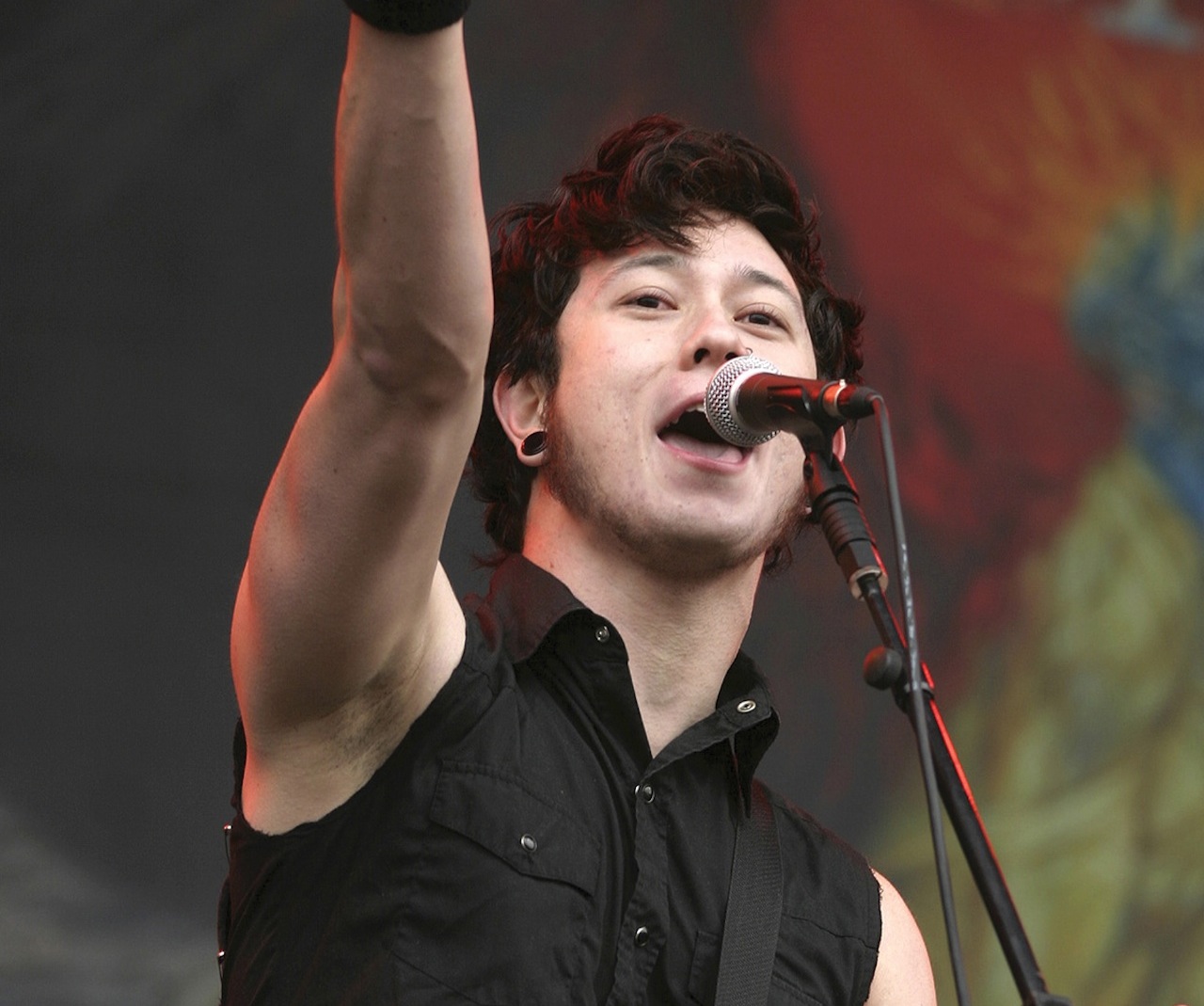
Though Trivium and Bullet bonded – “We were coming from the same place, with influences from the same legends, both flying the flag for metal for a new generation,” considers Matt – not everyone greeted the Florida band’s rapid ascent with such warmth. Matt became acutely aware of older bands on the US metal scene – acts he and his bandmates loved and respected – bitching about his band and the acclaim they were receiving. That Trivium made no bones about their desire to become metal’s next superstar band, while tearing across the planet with a hedonistic lust for life that could rival Mötley Crüe in their prime – only added fuel to the fire.
“There are definitely things I said when I was 18 or 19 years old where, if I could go back in time, I’d slap myself in the face and say, ‘Stop it, you little asshole!’” Matt laughs. “Our label was encouraging us to play up the sex, drugs and rock’n’roll angle, saying, ‘Talk about this stuff that you’re doing, people like this stuff’ and at 18⁄19 years old you’re happy to take that guidance. It wasn’t like we weren’t doing these things, but I can see how people would think we were cocky little bastards.”
“If we hadn’t gone a little crazy back then, there would’ve been something wrong,” reasons Paolo. “You’re 18 or 19 years old, travelling the world for the first time, meeting girls and getting free drinks every night… of course you are going to have fun with that. We had a good time, but we were always serious about the music. That was always priority number one.”
In March 2006, Trivium returned to the UK for a victory lap, a sold-out 19-date tour, including two shows at the 2,000-capacity Astoria in London. On the second of those nights, this writer was tasked with walking onstage to present each member of the band with a silver disc commemorating 60,000 UK sales of Ascendancy.
“Holy fuck!” exclaimed a clearly surprised Matt to the crowd as chants of “Tri-vi-um” echoed around the room once more. “This is because of all of you. Thank you.”
Even down a TransAtlantic phone line, you can tell Matt and Paolo are grinning broadly as memories of that night are exchanged. Back then, even at the height of their success, some questioned whether Trivium could genuinely live up to the success of Ascendancy; whether this wasn’t a flash-in-the-pan moment for the Florida teenagers.
Ten years on, with their band set to return to the UK this summer to headline Bloodstock festival – emphatic proof of their continued relevance and importance to a scene they helped reinvigorate – both men can look back upon such nights as lighting the touchpaper for a new era in metal history.
“You can still hear something special in Ascendancy,” says Paolo. “It’s amazing that 10 years on people still want to hear songs like A Gunshot To The Head…, Like Light To The Flies and Pull Harder… We’ll always be thankful for that.”
“There was a lot of ‘heirs to the throne’ stuff thrown out then, but we were always up for the challenge,” Matt notes. “It wasn’t daunting; it was exciting. I go back to Ascendancy and can’t believe that we pulled it off at such a young age. No one knew what was coming when that record came out… shit, we didn’t know ourselves.”
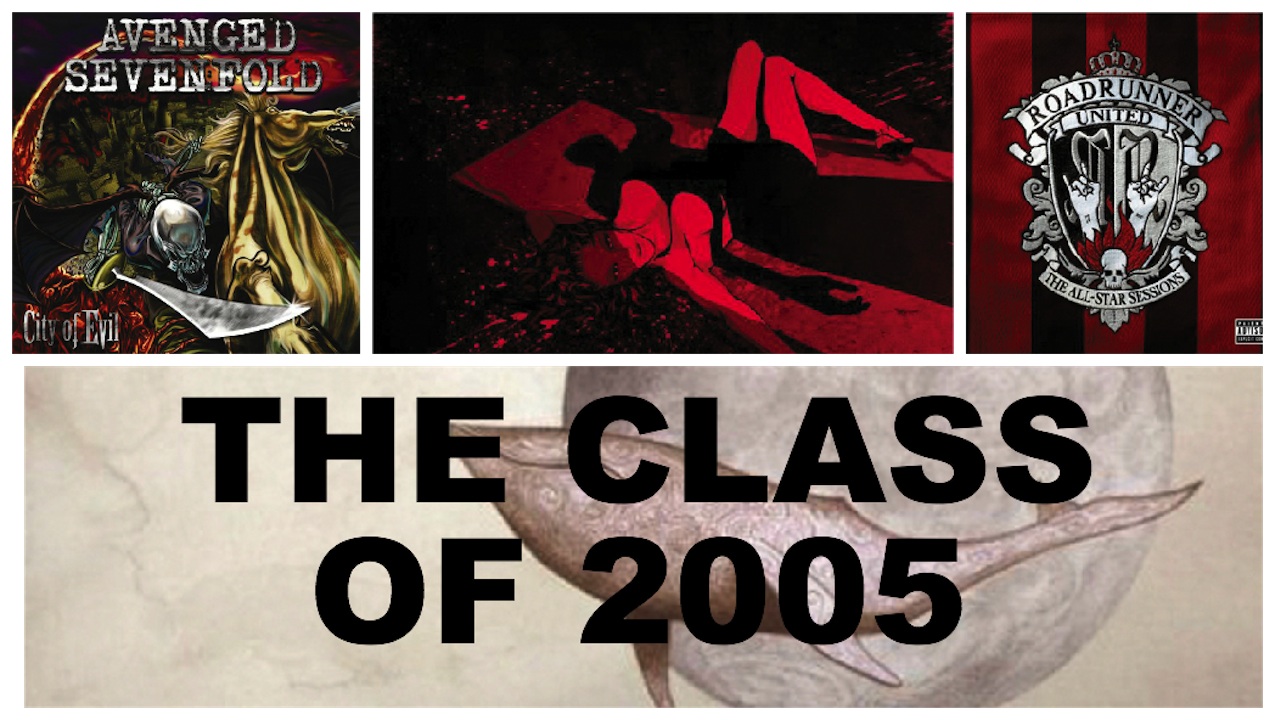

A music writer since 1993, formerly Editor of Kerrang! and Planet Rock magazine (RIP), Paul Brannigan is a Contributing Editor to Louder. Having previously written books on Lemmy, Dave Grohl (the Sunday Times best-seller This Is A Call) and Metallica (Birth School Metallica Death, co-authored with Ian Winwood), his Eddie Van Halen biography (Eruption in the UK, Unchained in the US) emerged in 2021. He has written for Rolling Stone, Mojo and Q, hung out with Fugazi at Dischord House, flown on Ozzy Osbourne's private jet, played Angus Young's Gibson SG, and interviewed everyone from Aerosmith and Beastie Boys to Young Gods and ZZ Top. Born in the North of Ireland, Brannigan lives in North London and supports The Arsenal.
